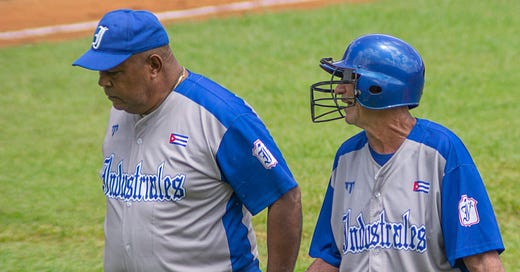This was a pretty crazy baseball Sunday! I wanted to rest to return to our postseason column on Monday, but there were too many strange things to note on my score card, and moments of tension and emotion in the dramatic Game 3 between Industriales vs Santiago de Cuba. I hope you have a happy week and continue enjoying our coverage. Remember, if you have…
© 2025 Yirsandy Rodríguez
Substack es el hogar de la gran cultura



